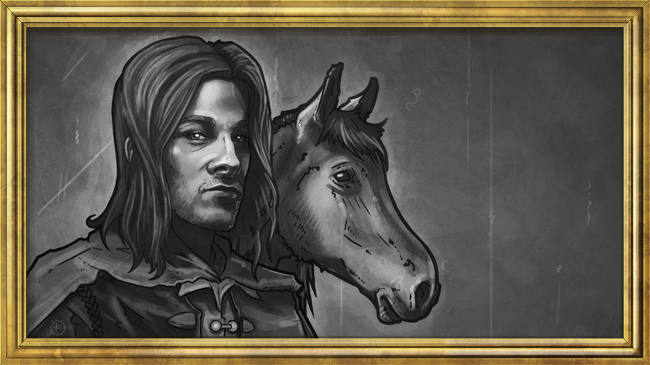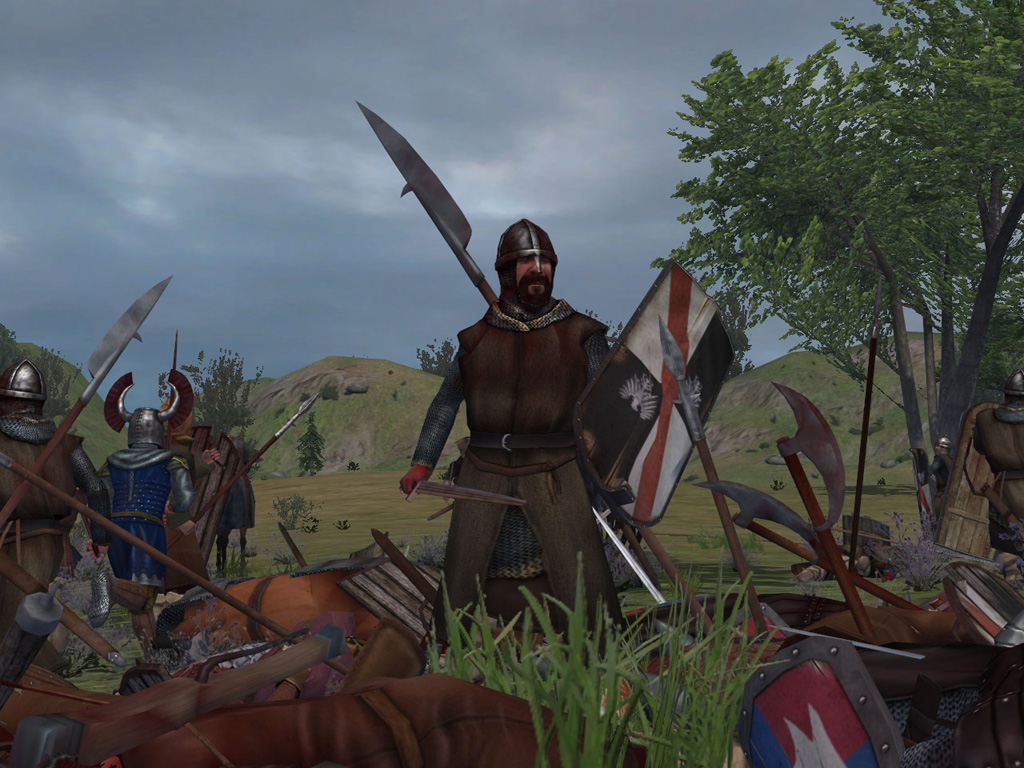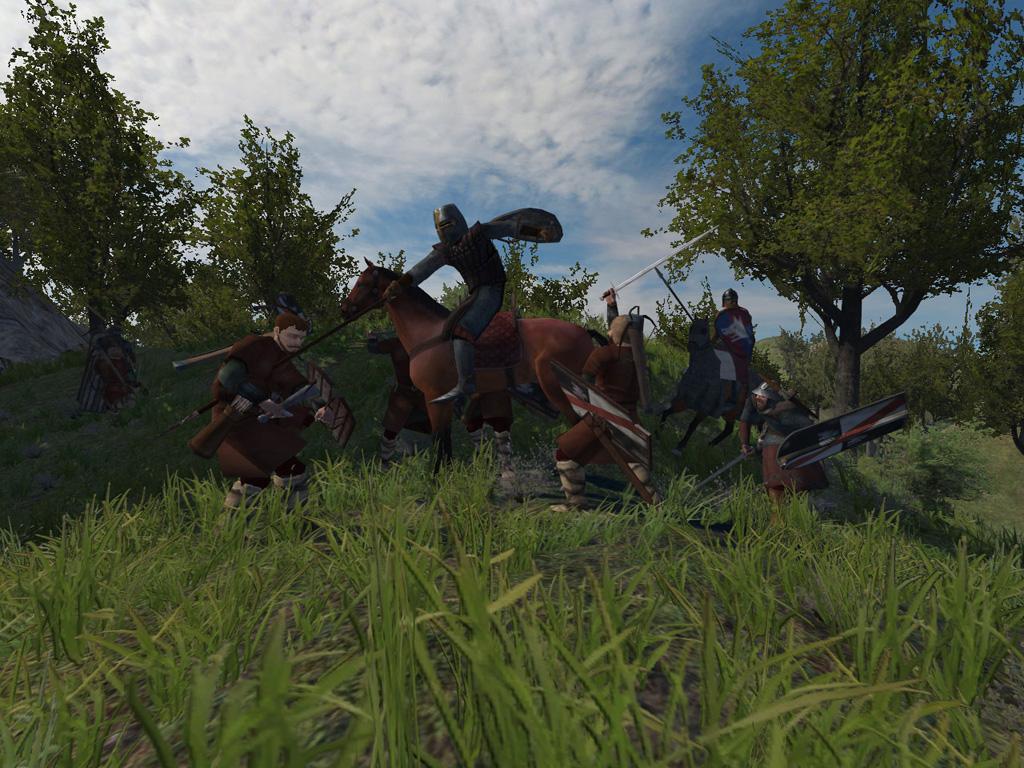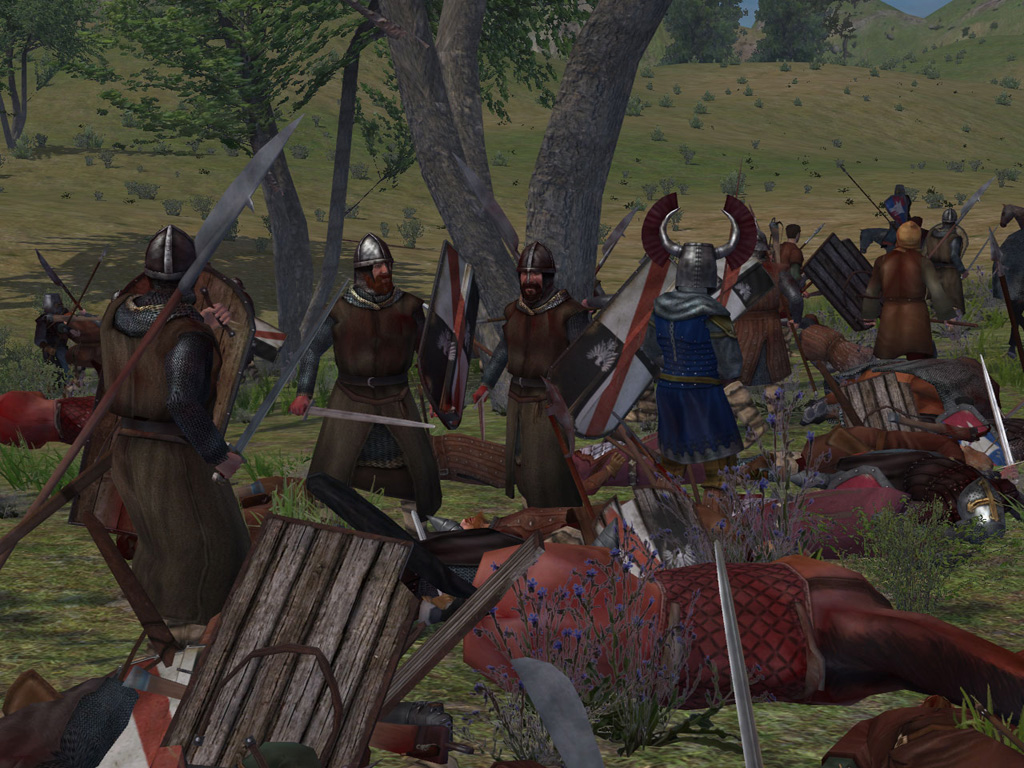The Mount and Blade empire began with a forum post
The modest beginnings of a game whose developers just wanted to get swordfighting right.

"I took some fencing lessons, but I’m not an athletic guy," says Armağan Yavuz, founder and CEO of TaleWorlds. "I was just more interested in the idea of fencing." A fascination with melee combat—how it feels, how it works, how it plays—drove the development of Mount and Blade, the game developed by Yavuz and his wife, İpek Yavuz, and released in 2008.
"My initial idea was to get the swordfighting element right," Yavuz says from his home in Ankara, Turkey. "I tried to make the combat part of the game more involved and more interesting. If all you had to do was clicking, there wasn't enough to keep a hardcore gamer interested… I wanted a mechanic that gave you more decisions and relied on reflexes and combined elements like horse riding and blocking… You really had to hit a good sweet spot to be intuitive, immersive, and easy to grasp, but complicated enough that you don’t get bored with it after a few hours."
Explaining Mount and Blade's combat system, where players change the directions of their strikes and blocks by moving the mouse up and down, left and right, can seem almost quaint today. Mouse controls like those pioneered by Mount and Blade have deepened and evolved, reappearing in games like Chivalry: Medieval Warfare, For Honor, and Kingdom Come: Deliverance.

But in 2008, melee mouse control like these had never been done before—at least not in a way that was actually enjoyable. As far as I could find, 1998's Die By The Sword was the only game before Mount and Blade to attempt a combat system more in-depth than the click-click-click-click routine embraced by every game from Diablo to Oblivion. Though Die By The Sword wins a ribbon for being first, our own Richard Cobbett described it as being "as easy to play as a piano covered with razor wire," which is both an evocative image and a damning indictment.
We said, 'This is the game, it's not finished, but if you purchase it now, we'll be able to complete development.' We didn't have very high hopes, really.
Armağan Yavuz
When Yavuz came up with the basic elements of his melee combat system, he decided to build a game that would let that system shine. As we talk about all the things that made Mount and Blade remarkable for its time—an open-ended world, the lack of a narrative, a strong medieval theme without a hint of Lord of the Rings-style fantasy—it became clear that all of those decisions rested on one thing: will this make the melee combat stand out, or not?
Magic, for example, would just lead to weaker swordplay. "There weren't many action games that played without magic," Yavuz said. The ethos of Dungeons & Dragons was embedded deep in the psyche of videogames. If it wasn't sci-fi and it wasn't set in Afghanistan, a game almost always had swords, bows, and magic missiles. "Getting rid of fantasy elements came [much] later as a decision," Yavuz says. "Once I could see that the swordfighting worked, then I could make a decision to really focus on it; it would be the backbone of the game. I thought it would be a good idea not to water it down with lots of fantasy elements and magic. If we introduced magic, then we'd have to make it balanced and give magic users a chance to defeat sword-fighters."

Making the game open-ended, without a structured narrative, was a way to guide players toward growing their mastery of the combat. "If you [have] an interesting mechanic like this, you need to make it replayable," Yavuz says. "If you made a story-driven game where you expect the player to spend 10-15 hours, by the time they master the mechanic they've finished the game. The sandbox nature also gives the player more time to learn the combat and excel."
The biggest gaming news, reviews and hardware deals
Keep up to date with the most important stories and the best deals, as picked by the PC Gamer team.
Mount and Blade came along at the right moment to be first at a lot of things, but being first is rarely an easy road. Armağan and İpek pitched their demo to publishers, looking for funding, and came back empty-handed. They didn't have a lot of overhead as a two-person team, but they were quickly running out of options.
"As a last-ditch effort, we came up with the idea of getting funding from the players themselves," Yavuz said. "We prepared a version of the game that worked but didn’t have a lot of content. We said, 'This is the game, it's not finished, but if you purchase it now, we'll be able to complete development.' We didn't have very high hopes, really." They didn't know how it would be received by players, didn't know how to advertise, and "were a little embarrassed" by trying to sell an unfinished game.
We will now pause for a moment and think about how charming it is that a developer might be embarrassed to sell an unfinished game.

Out of options and just a little red-faced, Yavuz posted a link to their online store to a couple of forums and left it at that. A day later, the forum post had grown into a thread five pages long. Players picked Mount and Blade up immediately and spread it around, funding development and building a fanbase and a community at the same time.
"We learned a great deal from the community, and some people started doing mods and then ended up working with us," Yavuz said. "We also had a really knowledgeable community. We had a special suggestions forum, and some of the discussions there were really mind-boggling. There was an economics professor commenting on medieval economies and giving feedback! People who were real experts gave feedback, and that was really valuable and useful."
When the game finally released in 2008, it already had an active modding scene churning out ambitious mods. The modding scene has only grown over the past decade, releasing huge projects like full-conversion mods set in Sengoku-era Japan, the Star Wars universe, Middle-Earth, and Westeros. A decade later, the series has gone on to sell six million copies.
Looking back on Mount and Blade, the first thing that Yavuz feels is anxiety. Mount and Blade's first official sequel, Mount and Blade 2: Bannerlord, is still in development. "It freaks me out and it makes me feel old a little bit. It's mostly to do with Bannerlord being a bit late. I'd be more relaxed about it if Bannerlord was released. I'd be more relaxed about it and pop some champagne, but instead I just want to work faster."
This article is the finale of the Class of 2008, a series of retrospectives about indie games from that defining year.

